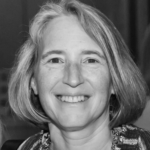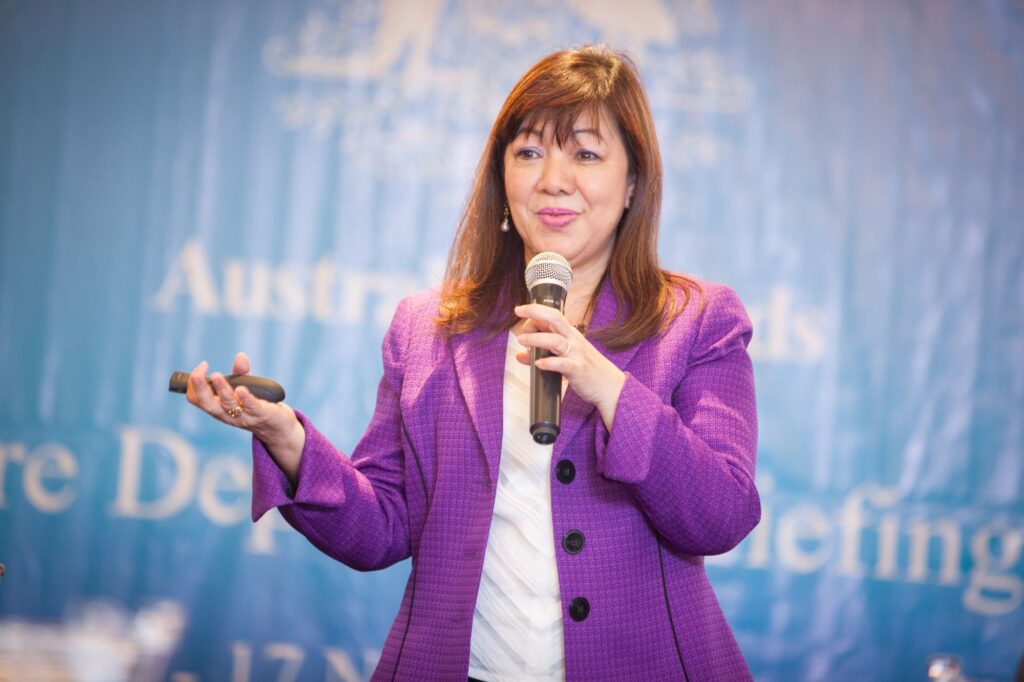

The Professional Government Association (PGA) in Ukraine exemplifies the profound benefits of a diaspora community. This case study, forming the third part of the series, examines PGA’s evolution from its inception to its current role in a war-torn society.
Foundation and mission
The PGA emerged in the wake of Ukraine’s pivotal 2013-2014 EuroMaidan Revolution. Sparked by the government’s refusal to sign an EU association agreement and exacerbated by a violent crackdown on protesters, the demonstrations quickly evolved into a nationwide movement for change. Ukrainians unified in a fervent display of resistance against corruption, human rights abuses, and Russian influence. The revolution, marked by the “Million’s March” and culminating in the toppling of the pro-Russian regime, set the stage for transformative action.
Against this backdrop of newfound patriotism and the quest for a democratic identity, the PGA was formed. It was an assembly of over a thousand Western-educated Ukrainian professionals – alumni of prestigious institutions like Harvard and London School of Economics (LSE) — who were determined to direct their expertise towards national reform. They proffered their international experience to the government, proposing the creation of new ministry teams and advising on tackling the nation’s pressing challenges, especially corruption.
The PGA’s mission has since been to make the Ukrainian government the most effective in the world—innovative, high-quality, and service-oriented. Their objectives include assessing civil service effectiveness, uniting professionals, facilitating public administration reform, and monitoring the progress, thereby ensuring Ukraine’s civil service meets global standards.
PGA’s early impact and structure
By late 2015, approximately 100 PGA members had significantly influenced public sector policies, notably the civil service law. The Association didn’t just participate in change; they drove it, revamping public administration and instituting a system that welcomed Ukraine’s brightest minds into civil service.
In the first year, a board of directors was organized and a membership structure was adopted. Annual Conferences brought together researchers, CEOs of leading state-owned enterprises, NGO leaders, government officials, civil servants, and Members of Parliament to discuss and debate Civil Service Reform progress, successes and failures, and further plans.
Partnerships with international university alumni clubs boosted the PGA’s ability to engage with their members and form lasting alliances and global community. “The PGA has always been about promoting European-centric reforms that are necessary for the future of the nation. So, that’s what we will do,” states Lizaveta Badanova, a key PGA member.
Pivotal shift in 2022
With the start of full-scale Russian invasion of Ukraine in 2022, PGA swiftly adapted to calling on the diaspora to serve the emergent needs of their war-torn home.
Ambassador of Ukraine to Australia and New Zealand, Vasyl Myroshnychenko, a PGA co-founder, highlights the organization’s critical role in Ukraine’s reconstruction: “Initially, we aimed for reforms, but now, amidst Russian aggression, we’re focusing on reconstruction-driven reforms.”
Reflecting on over a decade of PGA’s journey, Ambassador Myroshnychenko noted the organization’s growing trust and influence with state stakeholders and embassies, the enforcement of its bylaws, and the dedicated team driving its mission. However, he underscored that funding remains a significant challenge in maximizing PGA’s impact.
PGA today and value to Ukraine
Led by Kostiantyn Lisnychyi, a Harvard Club of Ukraine Secretary-General, and supported by a board of equally distinguished professionals, the PGA now boasts 3000 members.
As Ukraine faces the immense challenges of a full-scale Russian invasion, the PGA has pivoted its mission towards the country’s reconstruction post-victory — a process that has already commenced. PGA members, armed with global education and vision, are central to shaping a forward-looking, efficient, and service-oriented government.
While serving Ukraine, PGA members also benefit from their participation. They have access to leadership, make new connections, and receive critical information, fostering career awareness and opportunities, particularly in the post-war re-establishment phase.
A prime example of PGA’s community-building efforts is the annual Women’s Leadership Conference, most recently held on October 19, 2023. The “Vision of Women in the Future of Ukraine” conference, a collaboration between PGA and the Harvard Club of Ukraine, supported by the Konrad Adenauer Foundation, highlighted the pivotal role of women in wartime and post-war scenarios. Distinguished speakers from diverse backgrounds, including military officers, economists, government officials, and activists, shared their insights and experiences, reflecting PGA’s commitment to inclusive dialogue and empowering leadership. This hybrid event was a major platform for sharing information and addressing current challenges, further solidifying PGA’s role as a hub for community engagement and member support.
Conclusion
PGA is an important diaspora organization that is building and sustaining community in an acute and challenging situation. It was and continues to be influential because it had formed a strong organization with purpose that had the will to pivot to address rapidly changing needs during challenging times. The PGA exemplifies the value of a diaspora organization to keep people connected and the ability to address specific home-country needs.
Series note
This article is the third part of a four-part series that explores the vital role of engaging a significantly large diaspora population in democratic societies. The first article in this series delves into why and how a diaspora should serve both its member community and their home country, providing insights into the fundamental concepts. Read the first article: Diaspora as Community of Impact. The second article discusses the importance of organised and focused diaspora communities in addressing identity challenges, contributing to Sustainable Development Goals, and fostering long-term benefits such as cross-cultural understanding and diplomatic relations between their countries of origin and host countries. Read the second article: Diaspora and the SDGs: Creating a Community of Impact.
About the authors
Yana Mokhonchuk operates at the intersection of international relations, journalism, creative writing, and art. She is currently interning at the Embassy of Ukraine in Australia, where she works closely with the Ambassador. She serves as a Marketing Consultant for Tetra Tech International Development.
Gretchen Dobson and Kathy Edersheim are co-authors of this four-part series on building diaspora communities. Kathy is president of Impactrics, an organisation of experts in international alumni relations, community development and leadership training that provides consulting to universities and membership organizations. Gretchen is a global engagement strategist, author and academic with 30 years’ experience across six continents. She serves as Associate Director, Scholarships, for Tetra Tech International Development.





